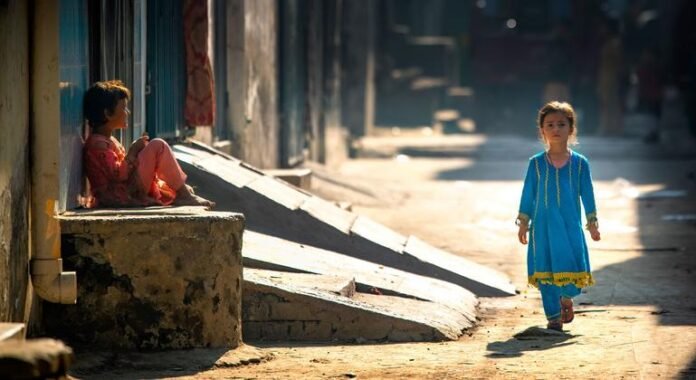Corporal punishment refers most frequently to hitting children but can refer to any punishments inflicted by parents, caregivers or teachers which are intended to cause some degree of discomfort. It can happen in the home or in more public settings like the school classroom.
But wherever it happens, this sort of punishment has wide-ranging effects, including increased risk of anxiety and depression in addition to reduced cognitive and socio-emotional development.
“[Corporal punishment] offers no benefits to the behaviour, development or well-being of children and no benefit to parents or societies either,” said Dr Etienne Krug, director of WHO’s Department for Social Determinants of Health.
No evidence that it works
Over past decades, many studies have examined the effects of corporal punishment, and not one has found that it has a positive impact on children or their behaviour. In contrast, many have found that it has many long-term negative health impacts on children as individuals – and societies as a whole.
“There is now overwhelming scientific evidence that corporal punishment carries multiple risks to the health of children,” Dr. Krug said.
A study conducted across 49 low and middle-income countries found that children who are corporally punished are 24 per cent less likely to be developmentally on track with their peers.
In addition to causing immediate physical harm, this form of punishment heightens children’s hormonal stress levels which can actually change brain structure and function. In short, the impacts on an individual level can be life-long, according to the report.
From a societal perspective, children who are themselves physically punished are also more likely to do the same to their own offspring, creating an intergenerational cycle of violence. Similarly, adults who were corporally punished as children are more likely to develop violent, criminal and aggressive behaviours.
“The practice [of corporal punishment] also fuels a broader social acceptance of violence, reinforcing harmful cycles across generations,” the report said.

There is no evidence that corporal punishment is effective at changing children’s behaviours.
Regional differences
While corporal punishment is prevalent across the world and across cultures, regional variations do persist.
For example, in Europe and Central Asia, approximately 41 per cent of children are subjected to corporal punishment in homes compared to 75 per cent in the Middle East and North Africa.
The disparity is even larger in schools — only 25 per cent of children in the Western Pacific experience corporal punishment during their schooling compared to over 70 per cent in Africa and Central America.
Girls and boys are almost equally as likely to experience corporal punishment, though they may experience punishment for different behaviours and in different manners.
However, children with disabilities are at a heightened risk for suffering from corporal punishment. Additionally, poorer communities and those which experience economic or racial discrimination are more likely to practice corporal punishment.
More than policy
The report emphasizes that banning corporal punishment is important but not enough. In fact, studies have found that there is no consistent association between legal bans and decreased rates in physical punishment.
Currently, 67 countries worldwide have universal bans on corporal punishment, both in the home and in school. In addition to better enforcement of these prohibitions, WHO is calling for new educational campaigns to reinforce the harm it can cause.
“Continuing use of corporal punishment and persisting belief in the necessity of its use despite legal bans, suggest that efforts to enact and enforce such laws should be accompanied by campaigns to increase awareness,” the report said.
Studies suggest that if parents knew of alternative and more effective methods of punishment for children, they would use them.
“It’s time to end this harmful practice to ensure that children thrive at home and school,” Dr. Krug said.





